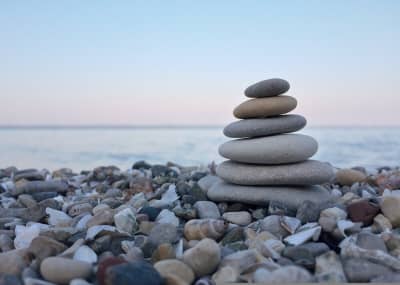Last week I promised Teg, and thus all us readers of today’s Moodscope Blog, that I would revisit our Ikigai. Ikigai is the concept of a Life of Value – a Life Worth Living, a Life of Purpose that can become a wellspring of youthfulness. It is strongly associated with the record-breaking longevity of the residents of Okinawa – where they have more people over the age of 100 than anywhere else in the world... because, many claim, of finding their Ikigai.
Revisiting this Japanese concept, I have an overwhelming sense that it has become reframed as a Western materialistic model. To be specific, most Western commentators will ask you four groups of questions.
Q. “What do you love?” or “What’s your passion?” or “What brings you joy?”
Q. “What are you good at?” or “What’s your gift or talent?”
Q. “What does the world need?”
And
Q. “What can you be paid for?” or “What is the world prepared to pay you for?”
This last one sours it a bit for me. And since I don’t want to be a sourpuss, let me simply free it from the monetary association and instead talk about another kind of value:
Q. “What would you be thanked for?” or “What would you be remembered for?”
If you fancy a bit of fame, it could even be, Q. “What would you like to be celebrated for?” I think of some of the many wonderful people, like Vincent van Gogh, who never received financial recognition within the limits of their own lifetime, but, nevertheless, found their Ikigai – their unique talent. In case you want to really feel the weight of this point, consider: Emily Dickinson, Franz Kafka, Edgar Allan Poe, Henry David Thoreau, Henry Darger, Gregor Johann Mendel, Galileo Galilei, Alfred Wegener, Johannes Vermeer, John Keats, Stieg Larsson, Oscar Wilde, Nick Drake, Jeff Buckley, Johann Sebastian Bach. Source: https://www.scoopwhoop.com/news/people-talent-only-recognized-after-death/
Bach was the biggest surprise for me. He was renowned in his lifetime for his technical skill in playing the organ, but his compositions only became famous after a welcome fresh interest in his works during the 1800s.
In a sense, all of these wonderfully talented people are mentioned here because they were magnificent at what they did – Human Doings… although that does sound rather nasty, doesn’t it? I have it on my heart to reset the way I value people. The world I have grown up in celebrates our success as Human Havings or Human Doings. We are rated as more or less successful corresponding to the amount we have accumulated, or what we have achieved.
Slightly more applaudable is the idea of a meritocracy – to be celebrated by the perceived value we bring to the world. And yet, I am still very uncomfortable with that. I serve a group of people, many of whom have diminishing capacity. Does that make them any less valuable? I think not.
Character over commerce gets my vote. Mother Teresa – a wonderful example of a Human Doing Good would not have found her Ikigai if she hadn’t first defined her character as a Human Being. Being > Doing > Having.
A long blog and yet I’d like to finish with some Henry David Thoreau…
“I went to the woods because I wished to live deliberately… and not, when I came to die, discover that I had not lived… I wanted to live deep and suck out all the marrow of life…"



Comments
You need to be Logged In and a Moodscope Subscriber to Comment and Read Comments